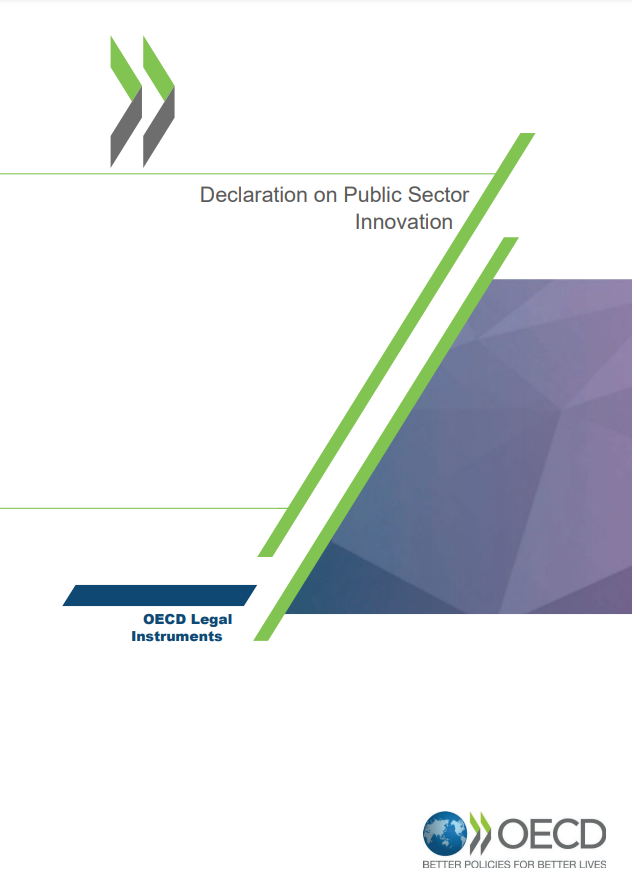OECD Declaration on Public Sector Innovation

Background
The Declaration on Public Sector Innovation (the Declaration) was adopted on 22 May 2019 by 35 OECD Members and 5 non-Members in the context of the OECD Council meeting at Ministerial level. The Declaration aims to legitimise innovation as a core and strategic function of public sector organisations and in the day-to-day work of public servants. The Declaration articulates a shared position for governments on how to support, improve and expand innovation to meet a variety of challenges and to take advantage of new opportunities on offer. It provides common principles, concepts and language that governments can draw upon to develop or enhance their own approach to innovation management, in ways that are relevant to their specific goals and administrative settings.
Declare to innovate
The Declaration introduces a set of five high-level principles, with associated actions that legitimise and support innovation as a core and strategic function of public sector organisations and of the work of public servants. In the context of the Declaration, innovation is understood broadly to mean the implementation of something novel to the context to achieve impact. At the time of its writing, it is acknowledged that innovation is still an emergent area of research and practice and it reflects the OECD’s most current and comprehensive thinking on the subject.
Adherents signal the importance of innovation to the way they contend with routine and complex challenges and exploit opportunities. They can use the principles and actions to inform or enhance their own, contextually relevant approaches to innovation and its management.
By providing common principles and actions, the Declaration enables governments with different contexts, experiences and needs a way to speak the same language in relation to innovation so that they can better understand, share and learn from each other.
An evidence-based and inclusive process to develop the Declaration
The Declaration reflects years of discussion, research, analysis and country studies that the OECD, in particular through its Observatory of Public Sector Innovation (OPSI), has undertaken on public sector innovation. From 2014 to 2017, discussions at OPSI conferences explored the possibility of an OECD legal instrument for innovation. Throughout 2018 and 2019, the OPSI National Contact Points and the OECD Public Governance Committee (PGC) reviewed draft Declaration which reflects many conversations and forms of collaboration with OECD Members, non-Members and input from the public. It intends to spark many more.
It was important to OPSI and the PGC to open the draft Declaration to an extensive public consultation to ensure that its contents reflected the needs of its ultimate end users, with the aim to solicit meaningful feedback from key stakeholders and target audiences on the draft text of the Declaration. Quality of contribution was equally important to quantity, given that the Declaration strives to cohere concepts and language around an emerging area of research and practice for a group of people often operating largely outside mainstream activities in government.
An integrated stakeholder engagement and strategic communications campaign supported the realisation of this objective. OPSI managed a stakeholder engagement program and integrated communications campaign, under the banner ‘Declare to Innovate’, which encompassed content creation and marketing, media relations, webinars and social media resulting in 149k Twitter impressions on the hashtag #declaretoinnovate and high engagement in the consultation process.
Through its dedicated digital consultation platform, OPSI received 97 responses from 38 different countries to the public consultation. These responses were a mix of individual responses, from individuals reflecting on their own experience/ organisation, or group responses, which reflected the collation and synthesis of responses and presented on behalf of a group.

OECD Declaration on Public Sector Innovation
Enacted on 22 May 2019.
